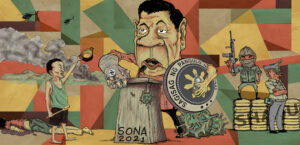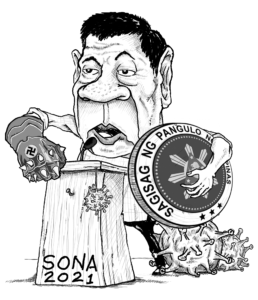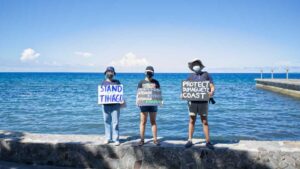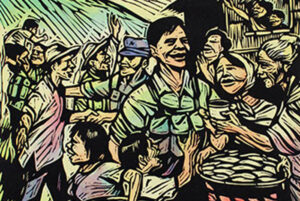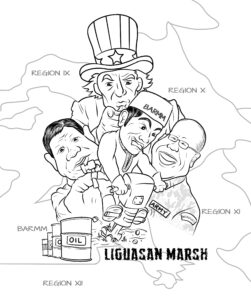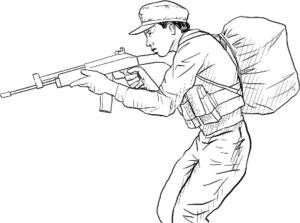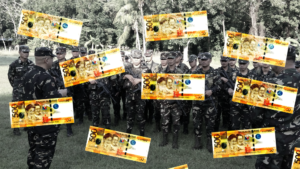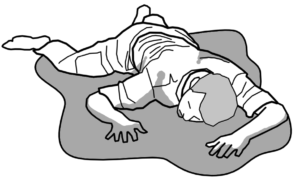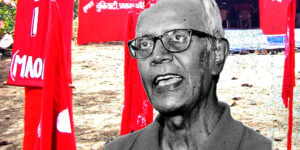Voracious generals

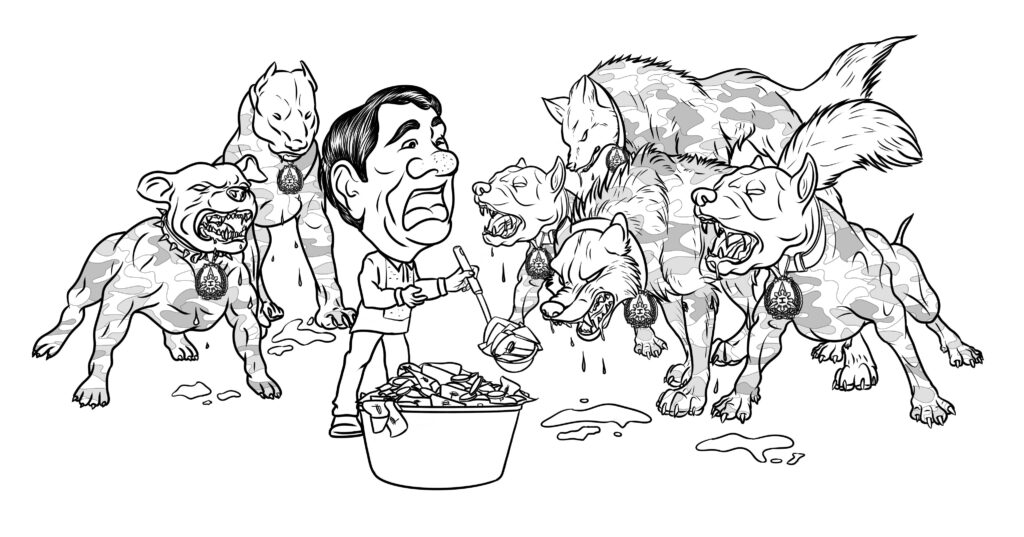
Military and police grip over society was further tightened when Rodrigo Duterte formed the National Task Force to End Local Communist Armed Conflict (NTF-ELCAC). Through this agency, retired and active military officers imposed their control even up to the barangay level. This is in line with the “whole-of-nation” approach of Armed Forces of the Philippines (AFP) which aims to subsume the civilian bureaucracy under the counterinsurgency framework of the military.
Military and police rule is very evident in the manner of regime’s response to the Covid-19 pandemic. Duterte’s generals in the NTF-ELCAC merely donned another shirt and composed the Inter-Agency Task Force for Emerging Infectious Diseases (IATF). Instead of appointing doctors and scientists, Duterte named his generals to manage the public health crisis, using shock and awe tactics to fight the pandemic. Similar to suppression of communities branded as territories of the New People’s Army and armed Moros, the movement of the entire population was placed under severe restrictions by the IATF generals.
Despite the ubiquity of checkpoints, and soldiers and policemen brandishing their weapons and displaying their tanks, the virus continues to spread and the Philippines continues to lag behind other countries in terms of Covid-19 response.
Public funds
People are made to carry the burden of satiating Duterte minions. Amid the pandemic, huge funds needed to address the medical needs of the people were instead squandered to feed the monsters.
The AFP and PNP budget ballooned by 27.7% from ₱289 billion in 2017 to almost ₱400 billion this year. During the same period, the health budget decreased by 10.7%. In the national budget for the current year, ₱33 billion was allocated for the procurement of additional weapons and military equipment in the name of AFP “modernization.” Duterte is also seeking for more US military aid and weapons in exchange for renegotiating the Visiting Forces Agreement.
Also due to the increase in uniformed personnel and higher salaries, spending for military pension is also set to increase. This is because, unlike other government employees, soldiers, police and other uniformed personnel do not contribute to their pension fund. Pensions for uniformed retirees come from taxpayers’ money. Their pensions are increased when their salaries are increased during their time of active service.
According to the Government Service Insurance System, its funds will be depleted in 20 years because of the burden of shouldering ₱859 billion pension for uniformed forces annually. Even after negotiations, the AFP and PNP refused to support the law that will mandate them to contribute to their pension. Under the Bayanihan 3, the AFP and PNP even inserted ₱54.6 billion to fund their pensions. This was the second biggest item in the proposed budget.
(This is the last of a two-part article.)
FIRST PART: Satiating the avarice of the dictator’s monsters

